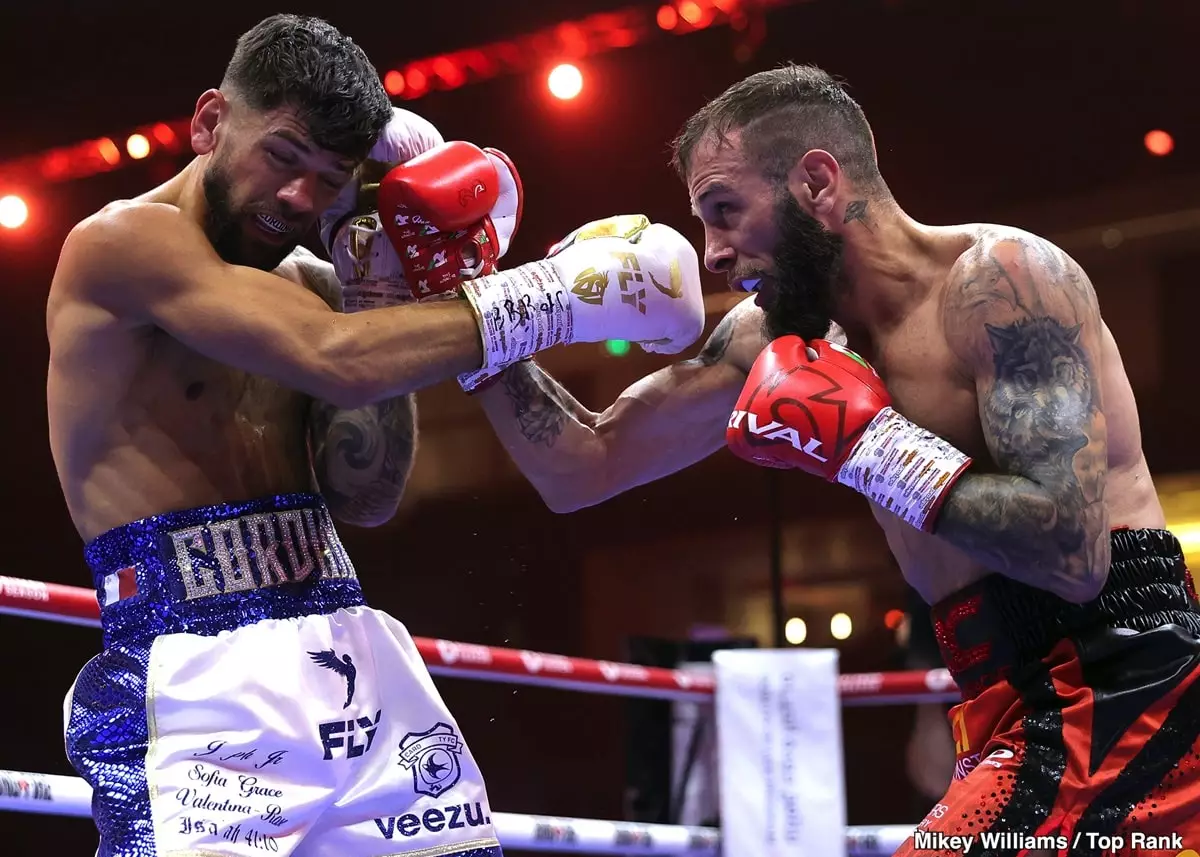In the world of professional boxing, decisions made by fighters can reverberate through the sport, affecting fans, promoters, and the fighters themselves. Recent developments regarding Anthony Cacace’s decision to vacate his IBF super featherweight title rather than defend it against the mandatory challenger, Eduardo ‘Sugar’ Nunez, have stirred up considerable debate. Promoter Eddie Hearn’s fierce criticism illustrates the larger implications of this contentious choice.
Anthony Cacace, a 35-year-old boxer with a respectable record of 23 wins and only one loss, has navigated a career that includes significant victories, notably against former IBF champion Joe Cordina. However, this success comes with the growing expectations that accompany championship titles. With a championship belt in hand, fighters are often faced with the obligation to defend it against their challengers. Cacace’s choice to vacate the title rather than face Nunez, who boasts an impressive record of 27 knockouts in 27 wins, raises questions about his commitment to the sport and the legacy he wishes to leave.
Cacace’s planned bout against former WBA featherweight champion Leigh Wood, who has not fought in two years, potentially presents a safer economic opportunity for him. It circumvents the risk associated with defending against the powerful Nunez, who many believe would dominate the matchup. While the boxing community often celebrates financial acumen, purists may disapprove of this strategic maneuvering, arguing that it undermines the sport’s competitive integrity.
Promoter Eddie Hearn’s disappointment reflects a broader disillusionment with boxing’s current landscape. Calling out Cacace’s decision as a ‘duck,’ Hearn articulates frustration over how the situation has affected Nunez, labeling it an unfortunate delay in the latter’s professional trajectory. Hearn’s sentiments echo a sentiment often voiced in boxing circles: that champions have a responsibility to engage with challengers and defend titles, fostering competition and excitement in the sport.
Hearn’s outbursts also hint at a systemic issue within boxing, where financial incentives can overshadow the sport’s foundational ethos of competition. Cacace’s pivot towards a more financially viable fight against Leigh Wood appears to exemplify a trend where boxers prioritize lucrative opportunities over challenging showdowns. The sport risks losing authenticity and vigor if athletes continuously shy away from potentially significant matchups simply for monetary gains.
Cacace’s decision begs the question: what does this mean for the future of champions? Boxers should not merely seek to collect titles but should aim to defend and unify them, thus establishing themselves as elite competitors? For fans, the implications are significant. Fights like Cacace vs. Nunez could have delivered exhilarating moments and built narratives that resonate well beyond the ring. Missing out on such contests disappoints boxing enthusiasts who crave thrilling encounters that define eras in the sport.
In light of this, Cacace’s statement that his goal is to create a legacy suggests a dichotomy. If his legacy is merely based on financially lucrative matches against aging opponents rather than vigorous, competitive battles, it may lack the substance that true boxing aficionados appreciate.
Cacace’s decision to vacate the IBF title may reflect a broader trend in professional boxing. As financial motivations increasingly dictate fighters’ choices, the sport risks straying from its core principles. Promoters, stakeholders, and fighters must engage in candid conversations about what integrity in boxing looks like.
To retain fans and attract new audiences, the sport needs compelling narratives driven by genuine competition. Fighters like Cacace and promoters like Hearn should reflect on how their choices ultimately shape the sport’s trajectory. Legacy in boxing is built not just on accolades or financial success but on the memorable battles that push athletes to their limits, lead to incredible rivalries, and foster excitement in the hearts of fans. As the sport evolves, it is critical that those involved remain attentive to the true spirit of boxing: a relentless quest for the championship, worthy challenges, and an unwavering commitment to entertaining the audience.

